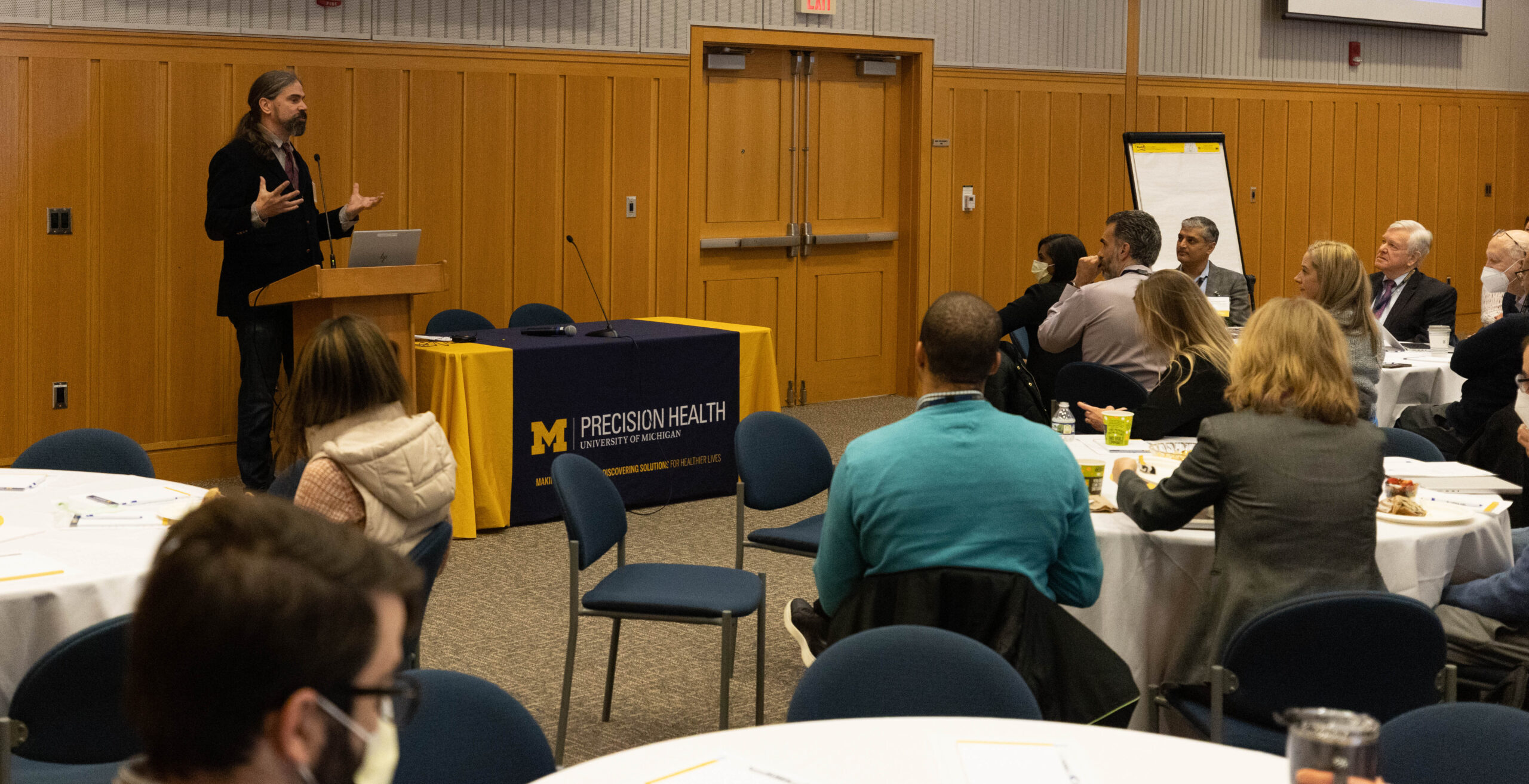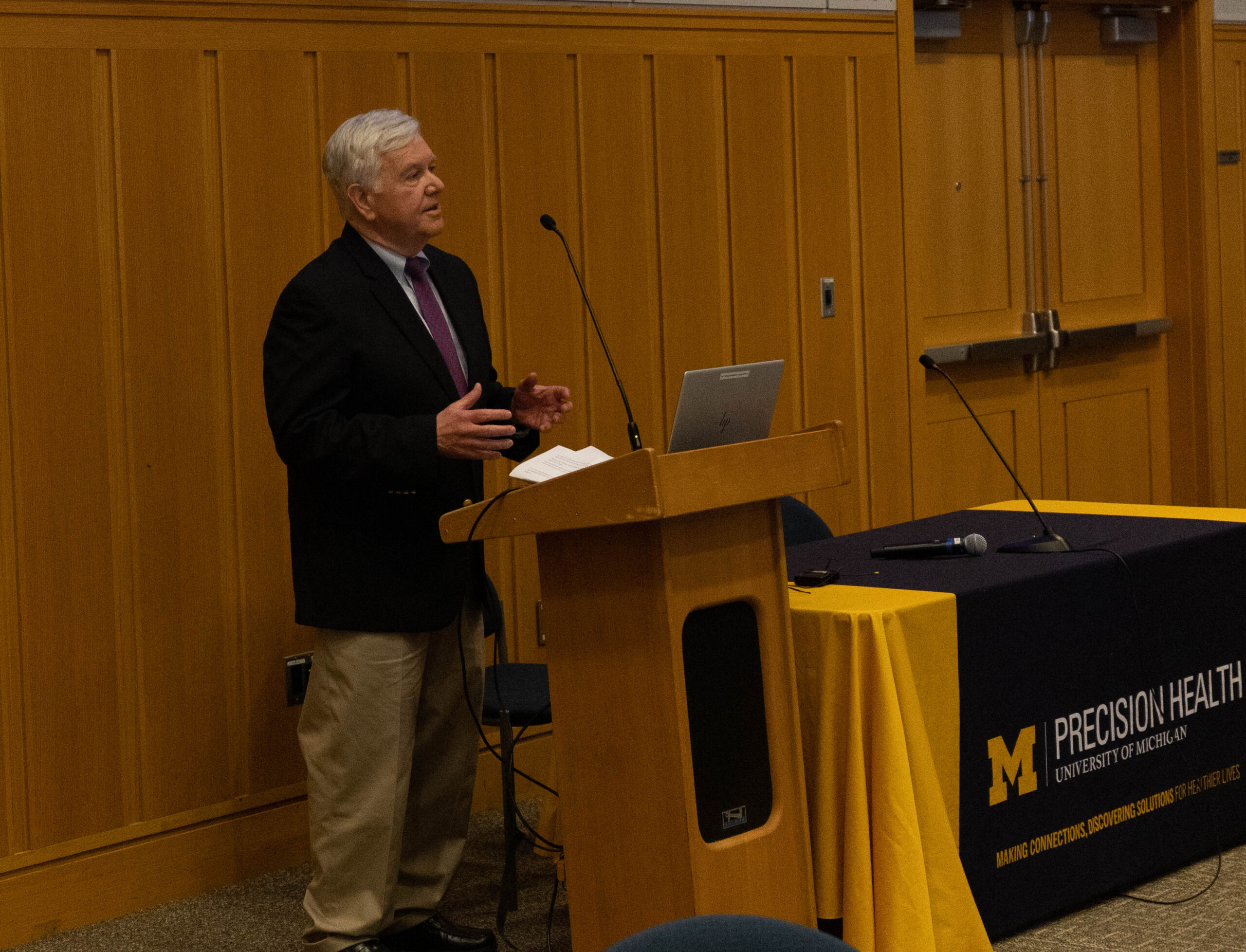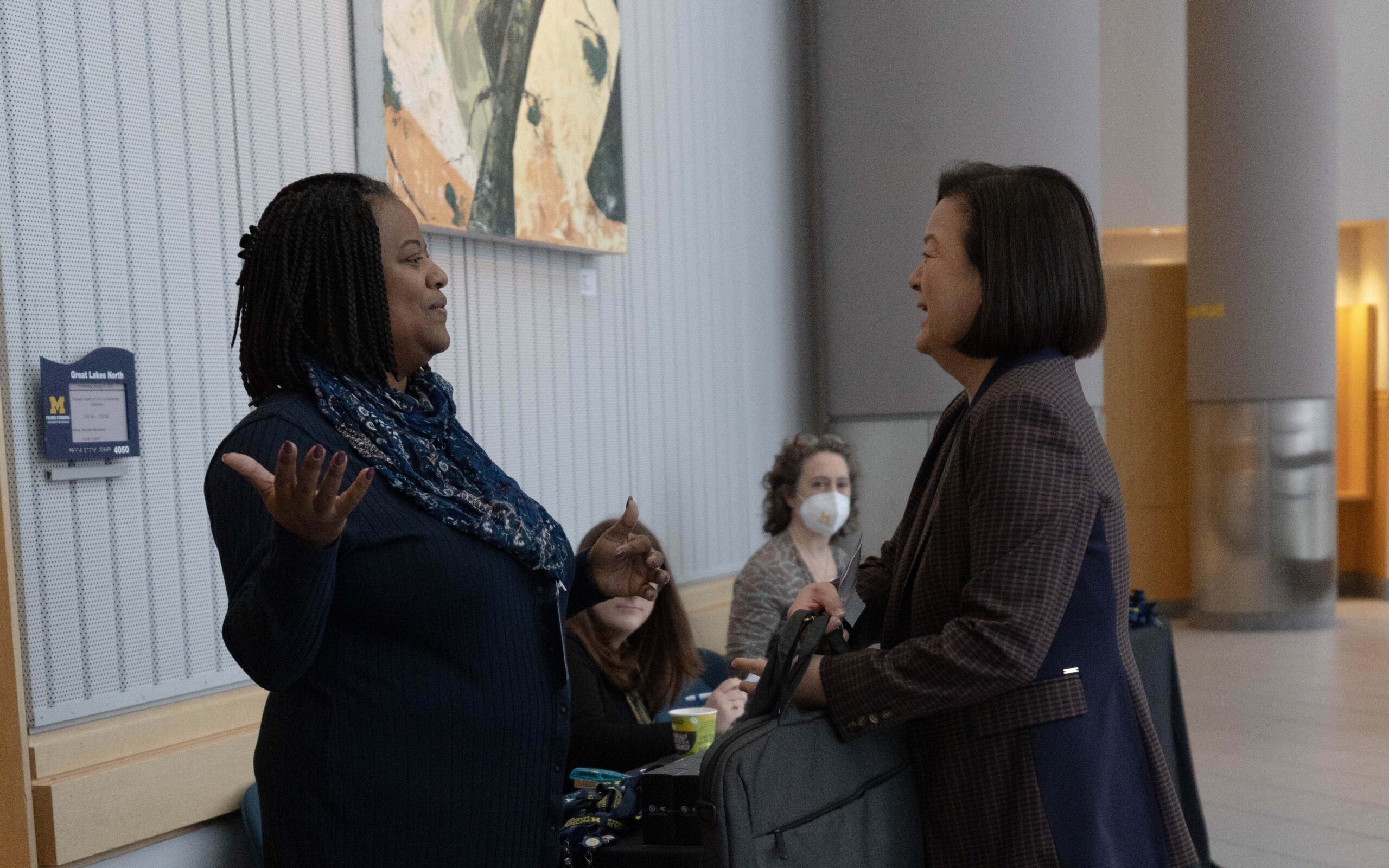Precision Health looks back on five years, looks forward to “Precision Health 2.0”
Watch videos from the event | View slide presentation from the event
On Wed., January 11, health researchers from schools and colleges across the university gathered at Palmer Commons to commemorate five years of Precision Health at the University of Michigan. Precision Health leaders presented on the past successes of this presidential initiative, and solicited attendees’ suggestions for building on these successes to take Precision Health into the next decade. “Now that it’s five years, it’s time to start setting new goals,” said Precision Health Co-Director Sebastian Zoellner, PhD, in his opening remarks.
Marschall Runge, MD, PhD, Dean of the Medical School and CEO of Michigan Medicine, introduced the event to the more than 100 participants. “[Precision Health] started as a very small group thinking about a vision, and that vision was ‘to improve health.’… I think that breadth is directly related to the success that all of you have had in collaborating across disciplines, across schools, and across the campus,” he said to attendees, noting that Precision Health has truly cultivated a culture of interdisciplinarity.
Precision Health Co-Director Brahmajee Nallamothu, MD, MPH, summarized Precision Health’s accomplishments and research breakthroughs over the past five years, including use cases (the PROMPT Study, which incorporates mobile technology into mental health care, and Precision Opioid Prescribing, which has established prescribing guidelines to prevent persistent opioid use and misuse after surgery), implementing a predictive model for C. diff (developed by Co-Director Jenna Wiens, PhD, and colleagues), uncovering racial bias in pulse oximetry, and the inclusion of the Michigan Genomics Initiative (MGI) in an international genetic consortium of 23 biobanks from four continents.
Precision Health member Kayte Spector-Bagdady, JD, MBioethics—acting co-director at the Center for Bioethics and Social Sciences in Medicine and an assistant professor of obstetrics and gynecology at the Medical School—led a panel discussion that included an overview of precision health, where it’s headed, and U-M’s contributions to the field. Panelists included:
- Amy Cohn, PhD: Alfred F. Thurnau professor in the Department of Industrial and Operations Engineering at U-M and faculty director of the Center for Healthcare Engineering and Patient Safety (CHEPS)
- Santhi Ganesh, MD: associate professor of human genetics and internal medicine, and director of the Michigan Biologic Research Initiative in Sex Differences in Cardiovascular Disease (M-BRISC) program at the Frankel Cardiovascular Center
- Daniel Hertz, PhD, PharmD: assistant professor of pharmacy in the Department of Clinical Pharmacy
In the afternoon, invited participants stayed for a Q & A session with Precision Health co-directors. Co-Director Jenna Wiens, PhD, introduced the vision for “Precision Health 2.0,” and asked attendees to break into smaller groups to discuss how they thought Precision Health should grow over the next five to ten years. To conclude the event, groups reported back their thoughts on how Precision Health could flourish in the next decade. These included audience-tailored presentations to publicize Precision Health and educate potential users about its tools and services, seminars to bring together both researchers with common interests and researchers with disparate interests, and ways to develop data resources, such as aggregating siloed datasets and continuing the complex process of translating data into usable formats.











